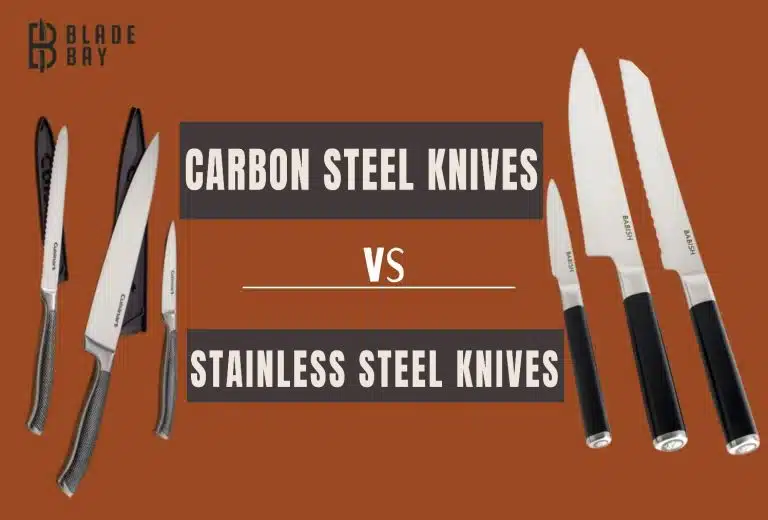Cangshan Knives N1 vs S1: Which One is Worth the Investment?
Table of Contents
ToggleCangshan Knives N1 vs S1: Which One is Worth the Investment?
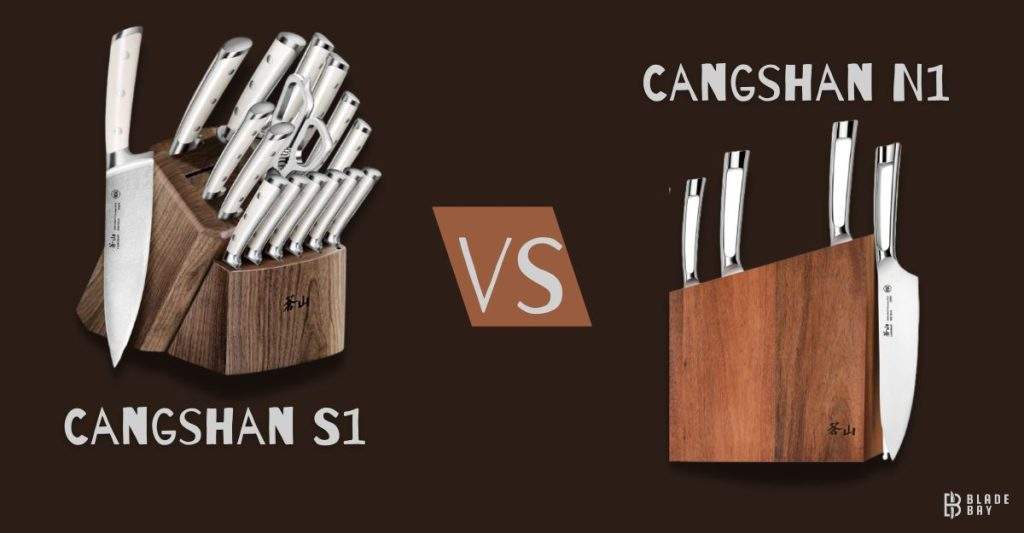
So, you probably like Cangshan and want to have one of their cutlery knife series, like the S1 line in your kitchen. But wait! there is another popular line, the N1 series people are also looking for. It is where the comparison of Cangshan knives N1 vs. S1 comes around.
Cangshan is a newer brand, having launched in 2015, but has gained widespread popularity due to its diverse range of product lines and collections.
The N1 and S1 series are the two primary lines from Cangshan, and customers often compare them when making a purchase decision. While the S1 line is more affordable, the N1 is typically preferred by professional chefs and other cutlery experts, despite its higher price tag.
So, don’t get to a conclusion yet! as we will provide a detailed comparison of these two-knife series from Cangshan. Stay tuned to learn about the key differences and which series may be the right fit for you.
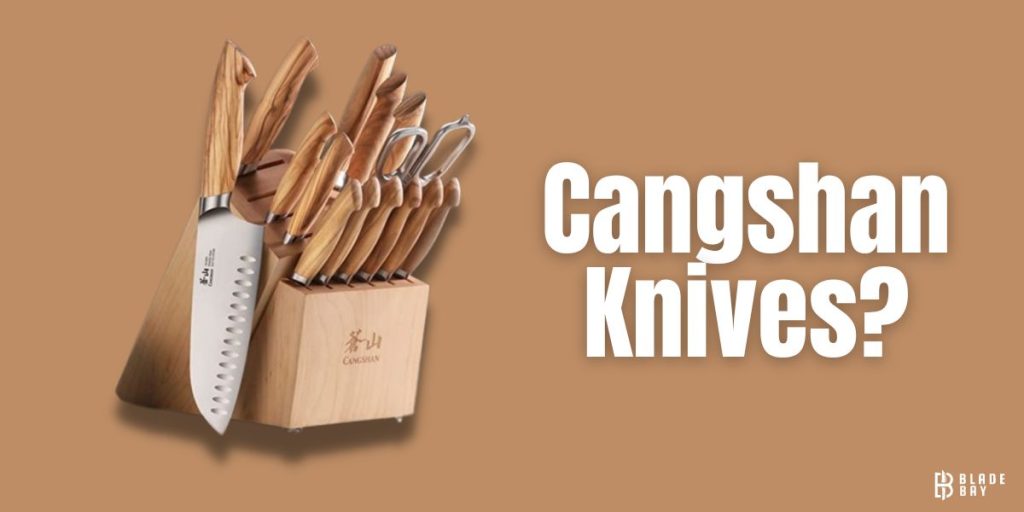
In our opinion, Cangshan Cutlery produces some of the most aesthetically pleasing kitchen knives on the market. The brand places a strong emphasis on design, materials, and user experience, offering a range of 25 different series. Almost all of their knives are manufactured in their Yangjiang, China factory.
Cangshan primarily uses German X50CrMoV15 Steel to forge their knives, which results in full tang, fully forged blades that have undergone heat treatment to achieve a Rockwell Hardness of approximately 58. While these blades are not as hard as those found in the brand’s premier collection made of Swedish steel, they are still razor-sharp and have a lower risk of brittleness.
Well! enough about Changshan. Let’s talk about their S1 and N1 knife series.
- Cangshan S1 Series: The S1 collection from Cangshan is a sought-after two-piece carving set that places a strong emphasis on aesthetics and minimalism. The set boasts a sleek, white design that can enhance the visual appeal of any kitchen. Despite their attractive appearance, these knives are also practical, featuring ergonomic handles that provide a comfortable grip during use.
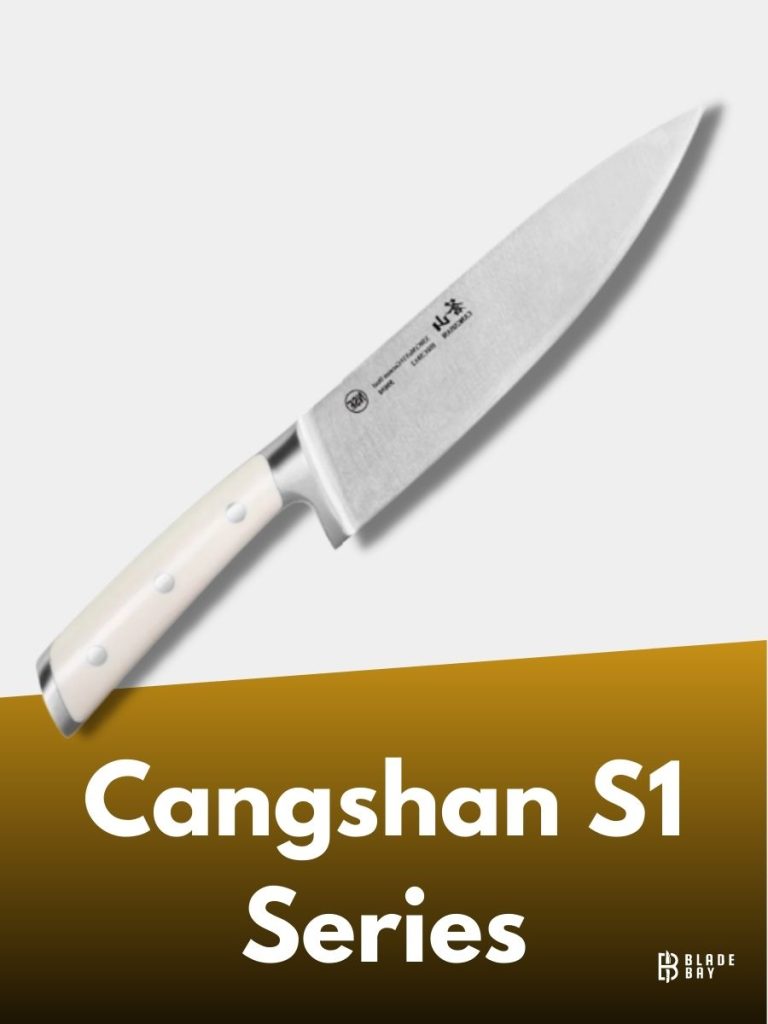
In addition, the S1 set is crafted using high-alloy German steel, which results in a Rockwell hardness score of 58.
- Cangshan N1 Series: The N1 line, on the other hand, features a striking all-metal design that boasts both impressive durability and sleek aesthetics. The knives feature a unique hollow handle that not only adds to their visual appeal but also enhances comfort during use.
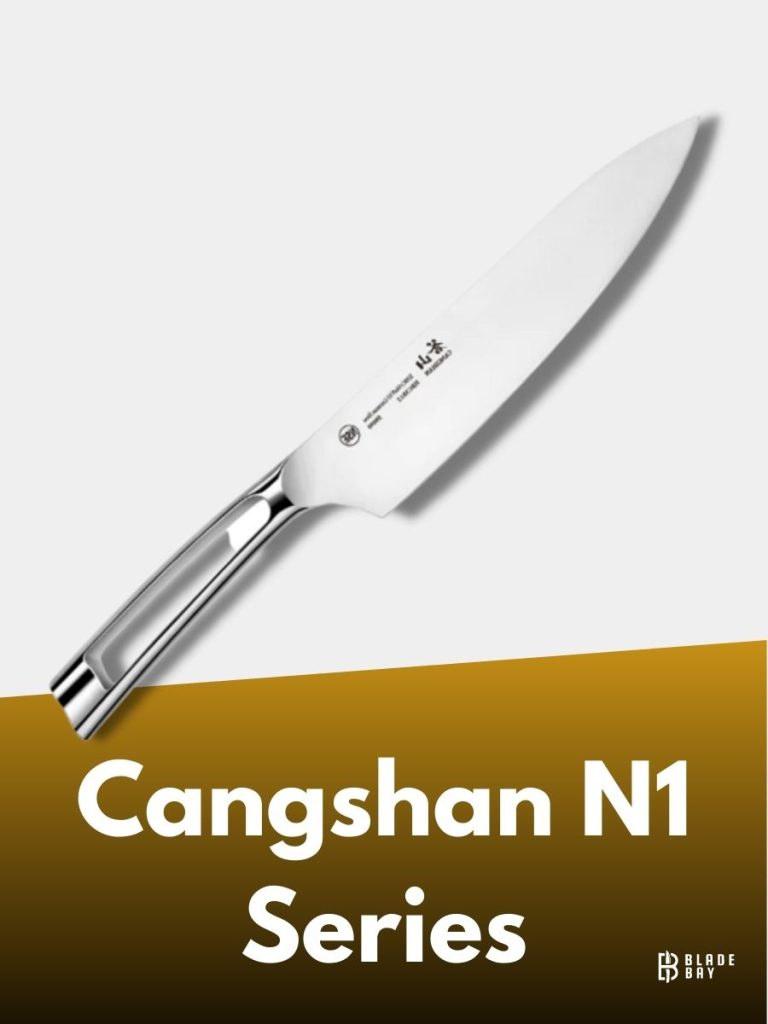
Despite their attractive design, these knives are well-balanced and built to withstand rigorous use. They are built using high-alloy German steel, ensuring both sharpness and durability.
Cangshan Knives N1 vs S1 Series – An A-to-Z Comparison
Now that we’ve looked at the basic overview of both the N1 and S1 series. Let’s compare them side by side.
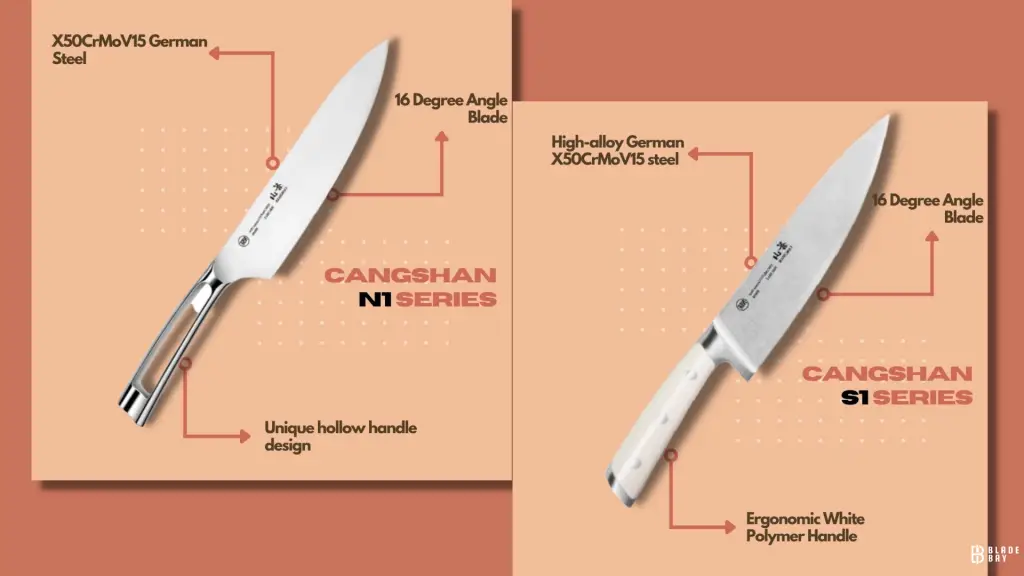
- Blade Material
The N1 series uses high-alloy German steel. Also, the S1 series uses high-alloy German X50CrMoV15 steel. Both types of steel are known for their durability and sharpness, so there’s no clear winner here.
- Handle
When it comes to the knife handle, The S1 series features an ergonomic handle made from white polymer that is triple-riveted for added durability.
The N1 series has a unique hollow handle design made from stainless steel, which provides a sleek and modern look.
- Sharpness
Both the N1 and S1 series knives are sharpened to a 16-degree angle, which provides a precise and sharp cutting edge. As the company stated, all their knives are hand sharpened with a ULTRA6 heat treatment that provides a Rockwell hardness rating of 58-61 +/-2 that generates a remarkably sharp edge.
- Knife Design
The N1 series knives feature a patent-pending design that focuses on a unique all-metal construction.
Also, the hollow-handle design provides a sleek, minimalist aesthetic while ensuring that the knife is well-balanced in the chef’s hand.
On the other hand, the S1 series knives are designed with a focus on minimalism and functionality, with a slightly curved bolster and a sleek, streamlined look.
The light-colored (white) handle provides a fresh take on the classic kitchen knife design and is a favorite among those who appreciate the attention to detail in aesthetics.
- Price
Now, in terms of price, S1 series knives range from $35 for a single knife to $449 for a knife block set.
The price range is a bit reasonable and affordable, making the S1 series a preferable option for those on a budget who still want a high-quality knife.
The N1 series is more expensive with a price range that starts from $39 for a single knife to $749 for a knife block set. The additional features and higher level of craftsmanship justify the higher price point.
The Final Verdict: Which is the Right Cangshan Model N1 or S1?
After taking a deep dive into Cangshan Knives N1 vs. S1 series, we assume you’ve got the right idea of which one to choose or which line will be the optimal choice for you. However, our expert thought on this matter is –
The choice between the N1 and S1 series will ultimately depend on your specific needs and preferences. If you’re just starting out or looking for a quality knife set without breaking the bank, the S1 series is an excellent choice. However, if you’re a professional chef or someone who takes their cooking seriously, investing in the higher-quality craftsmanship of the N1 series is worth the extra cost.
In conclusion, whether you choose the N1 or S1 series, you can rest assured that you’re getting a high-quality, durable, and stylish knife that will make all your cooking tasks easier and more enjoyable. Happy cooking!
FAQs
1.How Often do you Sharpen a Cangshan Knife?
Ans: The frequency of sharpening a Cangshan knife depends on how often it’s used and the type of food being prepared. In general, a Cangshan knife should be sharpened every 3-6 months with regular use. However, if you notice the knife is dull or not performing as well as it used to, it may be time for a sharpening. Using a honing rod regularly can also help maintain the sharpness of your Cangshan knife.
2.Are Cangshan Knives Made in China?
Ans: Yes, Cangshan knives are made in China. The company was founded in 2015 by a team of designers and craftsmen who are based in China. Despite being a relatively new company.
3.Are Cangshan knives full tang?
Ans: Yes, Cangshan knives are full tang. Full tang means that the blade extends the full length of the knife and is secured by rivets to the handle. This design provides better balance, durability, and strength, making it ideal for heavy-duty cutting tasks.


